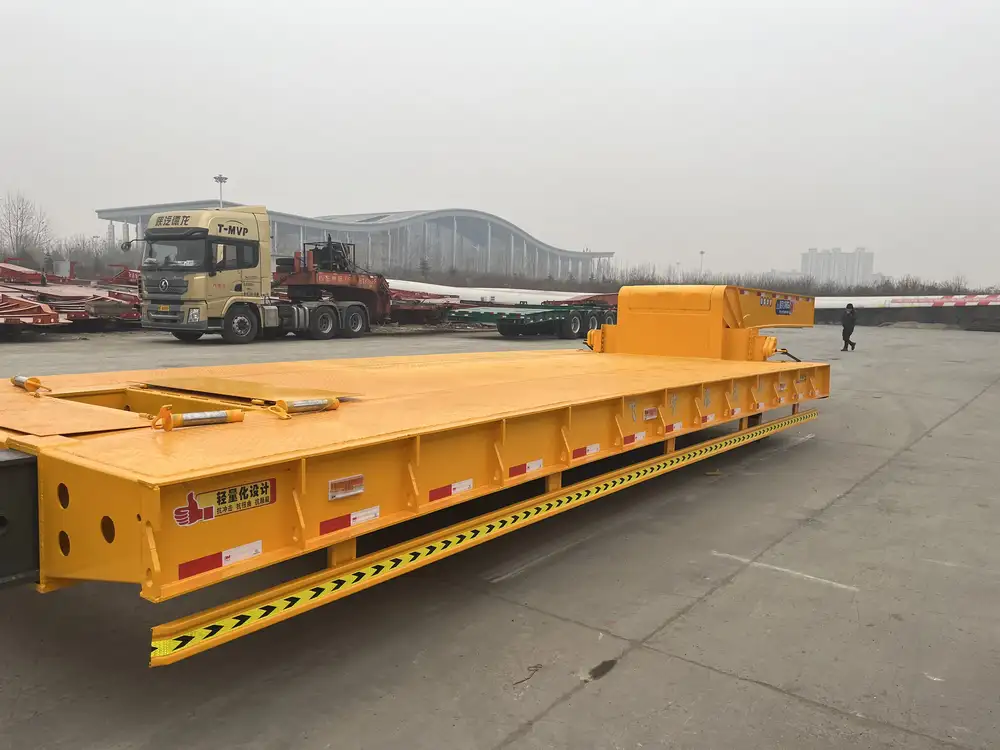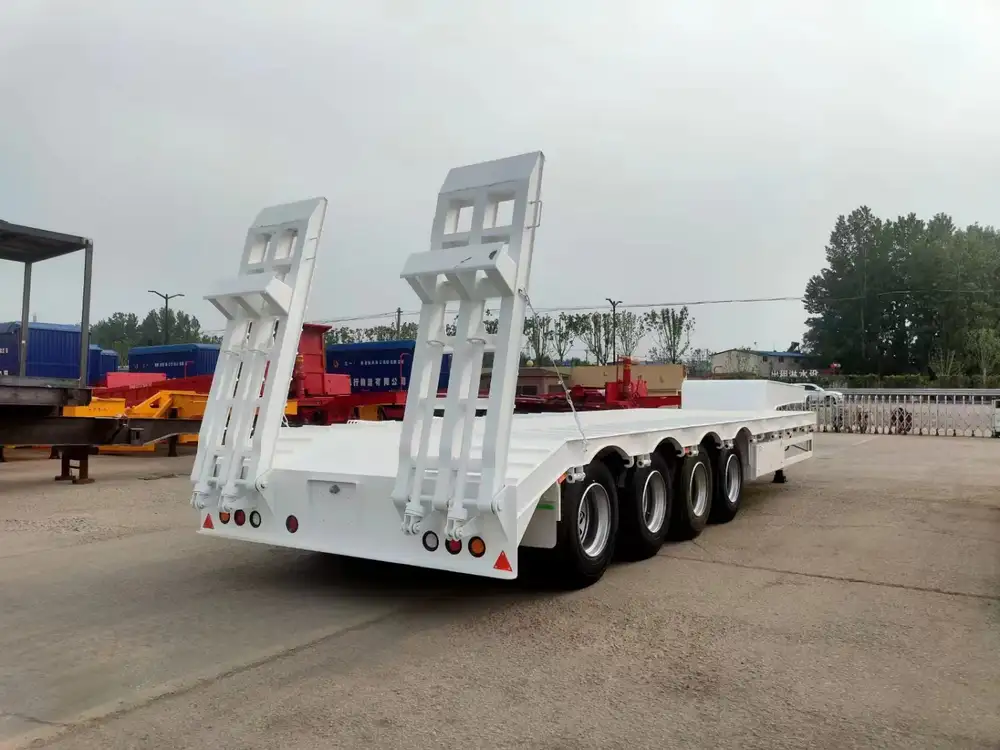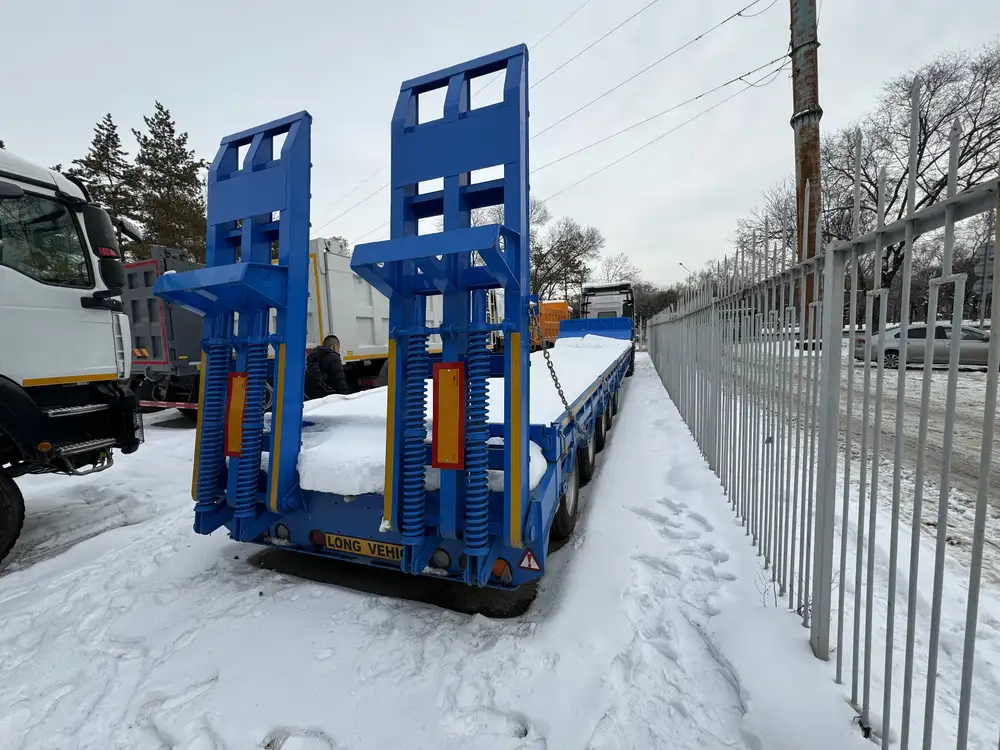When it comes to transportation, dump trailers are essential for a variety of industries including construction, landscaping, and waste management. They serve a dual purpose: they can haul materials to a job site, and they can also unload them efficiently. As potential buyers, users often seek information regarding the weight of these trailers. This article delves into how much dump trailers weigh, factors affecting their weight, and how this weight impacts transportation and loading capacities.
What Are Dump Trailers?
Dump trailers are specialized trailers designed specifically for transporting loose materials. They feature a hinged tailgate and a mechanism that allows the trailer bed to raise, dumping the contents of the trailer easily. These trailers vary significantly in size, design, and capacity, making an understanding of their weight crucial for manufacturers, rental companies, and end-users alike.
Average Weight of Dump Trailers
The weight of dump trailers can fluctuate broadly based on their construction materials, dimensions, and design features. However, to provide a general idea:
| Dump Trailer Type | Average Weight (lbs) |
|---|---|
| Light-duty | 2,000 – 3,000 |
| Medium-duty | 4,000 – 7,000 |
| Heavy-duty | 8,000 – 12,000 |

Light-Duty Dump Trailers
Light-duty dump trailers are typically used for smaller jobs. They are suitable for homeowners who require a trailer for garden debris, small landscaping projects, or small renovations. Weighing around 2,000 to 3,000 pounds, these trailers can handle payloads of about 1,500 to 2,000 pounds.
Medium-Duty Dump Trailers
Medium-duty dump trailers strike a balance between capacity and size. Often utilized by contractors and for commercial work, they typically weigh between 4,000 to 7,000 pounds. Their payload capacity can range from 5,000 to 7,000 pounds, making them suitable for transporting dirt, gravel, sand, and similar materials.
Heavy-Duty Dump Trailers
Heavy-duty dump trailers are designed for significant loads and rugged applications. They may weigh anywhere from 8,000 to 12,000 pounds and can carry payloads exceeding 10,000 pounds. These trailers are often equipped with enhanced hydraulic systems to accommodate larger loads and additional features that improve stability.

Factors Influencing the Weight of Dump Trailers
The weight of a dump trailer can be influenced by several factors, each pivotal to its intended use and functional efficiency:
Construction Materials
- Steel vs. Aluminum: Steel trailers are generally heavier than aluminum trailers, but aluminum trailers tend to be more resistant to corrosion, making them a long-lasting investment.
- Frame and Body Design: The design of the trailer’s frame and body can impact weight. For example, a heavy-duty frame with numerous reinforcements will weigh more than a standard model.
Trailer Size and Dimensions
- Length and Width: The dimensions of the trailer play a significant role in its overall weight. Longer and wider trailers tend to weigh more due to increased material usage.
- Height of the Side Walls: Taller side walls add additional weight, influencing the overall mass of the trailer while enhancing its loading capacity.

Trailers Features
- Axle Configuration: More axles contribute to a heavier overall weight. Dual axle trailers tend to be significantly heavier than single axle designs.
- Hydraulic Mechanisms: Trailers with advanced hydraulic systems for lifting are usually heavier due to the additional components required for operation.
Understanding Payload Capacity
In construction and transportation contexts, “payload capacity” is as crucial as understanding the trailer’s weight. This term refers to the maximum weight a dump trailer can safely carry. Here’s a breakdown of how payload capacity can be affected by the overall trailer weight:
| Trailer Weight | Safety Margin (15%) | Estimated Payload Capacity |
|---|---|---|
| 2,200 lbs | 330 lbs | 1,870 lbs |
| 5,000 lbs | 750 lbs | 4,250 lbs |
| 10,000 lbs | 1,500 lbs | 8,500 lbs |
The Importance of Calculating Payload
Understanding the payload capacity relative to the trailer weight is essential for the safe operation of dump trailers. Exceeding the payload limit can result in safety hazards, structural failure, and legal repercussions. Therefore, ensuring that one’s load does not surpass the recommended capacity is imperative for operational safety.

Regulations and Legal Considerations of Dump Trailer Weights
Manufacturers and operators must adhere to regional and federal regulations when it comes to truck and trailer weights. Exceeding Transport Weight Limits can lead to significant fines and increased risk of accidents. Each state in the U.S. has weight limit regulations for vehicles on public roadways, typically reflected in the following guidelines:
- Gross Vehicle Weight Rating (GVWR): A manufacturer-assigned weight rating usually encapsulating the weight of the trailer, cargo, and anything else on board.
- State-specific Regulations: States may have varying load limits for specific types of vehicles, including trailers. Operators must check local regulations to ensure compliance.
Tips for Choosing the Right Dump Trailer
Selecting the right dump trailer goes beyond understanding its weight and payload capacity. Below are some factors to consider that can assist in making an informed choice:
Application Needs
- Determine the types of materials you will be transporting. Light-duty trailers may be appropriate for smaller loads, while heavy-duty trailers are better suited for larger construction jobs.

Compatibility with Tow Vehicle
- Ensure the dump trailer is compatible with your towing vehicle’s specifications. Exceeding your vehicle’s towing capacity can lead to mechanical failure and accidents.
Budget Considerations
- Weigh your options regarding upfront costs versus long-term durability. While a cheaper option might save money initially, investing in a high-quality trailer can lead to savings over time through reduced maintenance and replacement costs.
Reputable Manufacturers
Working with established manufacturers can guarantee quality. Research and read reviews to ensure that the manufacturer you choose continually meets industry standards for safety and durability.

Maintenance Requirements
Each trailer design involves distinct maintenance needs, with heavier trailers typically demanding more upkeep. Consider factors such as:
| Maintenance Aspect | Frequency | Considerations |
|---|---|---|
| Tire Inspection | Monthly | Check for wear and proper inflation. |
| Brake Maintenance | Annually | Ensure effective stopping power. |
| Hydraulic System Checks | Every 6 months | Inspect for leaks and functionality. |
| General Structural Inspections | Biannually | Assess for rust, cracks, or damages. |
Conclusion
Understanding the weight of dump trailers can dramatically influence purchasing decisions and operational efficiency. We have explored various aspects, including average weights, influencing factors, payload capacities, regulatory considerations, and essential tips for selecting the right trailer for your needs. By factoring these elements into your buying decision, you can optimize your investments in dump trailers for maximum efficiency and safety in your operations.
Whether you’re involved in construction work, landscaping, or general transportation, the right dump trailer ensures reliability and productivity, ultimately leading to greater success in your projects.



